IMSE and DigiFAB Datathon: Molecular Adsorption to Surfaces
by Leah Adamson
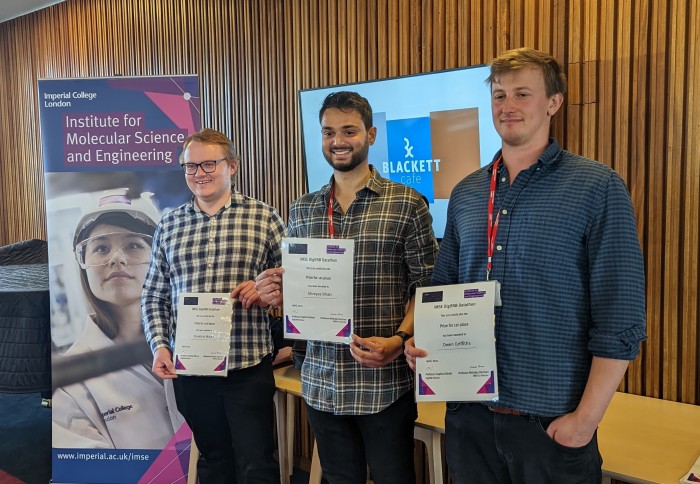
IMSE and DigiFAB Datathon Winners
IMSE and DigiFAB Datathon held their first joint datahon four multidisciplinary teams of students and early career research graduates competed.
On the 27th and 28th April the Institute for Molecular Science and Engineering (IMSE) and the Institute for Digital Molecular Design and Fabrication (DigiFAB) held their first joint datahon. Four teams from a range of different disciplines competed to win a cash prize.
The four multidisciplinary teams of undergraduate and postgraduate students and early career researchers interested in the area of data science participated in this hybrid event and produced amazing results.
The Challenge
Adsorption is the process of adhesion of any atom, ion or molecule from a generic phase (such as gas, liquid or solid) to a surface. Adsorption is a
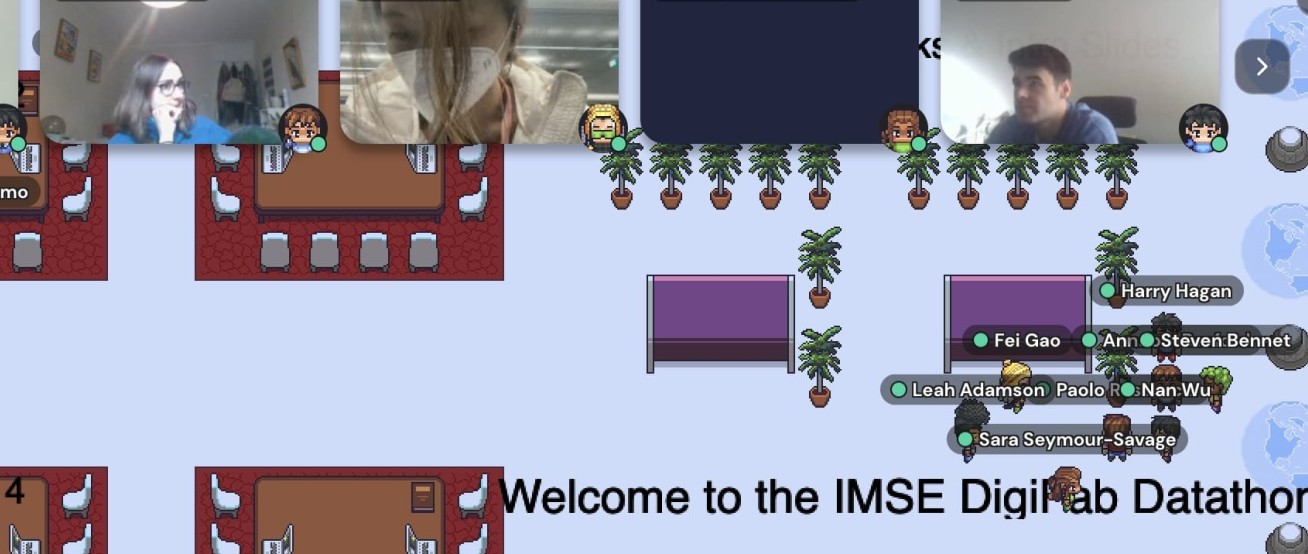
surface phenomenon due to the presence of unsaturated atoms on the surface. The challenge of this datathon was to create a predictive model to find effective descriptors for explaining the microscopic origin of the adsorption processes. Also, to create a new molecule that can replace and improve current molecular additives through experimenting with machine learning methods to create a "data-driven" model.
The Teams
There were four teams of five who competed in the datathon. Excitingly
“Chemistry data analysis is completely new to me. Without someone with domain knowledge, this task would have been more challenging.” Datathon Participant
many participants from a range of disciplines and departments including: Mathematics, Mechanical Engineering, Chemistry, Aeronautics, Chemical Engineering, Life Sciences and Physics. Each team was multidisciplinary with at least two different departments working together in a team. This meant that you did not need to have a vast knowledge of data science of chemistry to participate in the event. One participant commented on how important it was to have a cross disciplinary team saying, “Chemistry data analysis is completely new to me. Without someone with domain knowledge, this task would have been more challenging.”
The Event
The day started with a short presentations from helpers (Annabel Basford, Harry Hagan, Linden Schrecker and Nan Wu) who gave their time and knowledge to put together the challenges and data for the day. The Faculty of Natural Science’s Data Science Ambassador Steven Bennett worked extremely
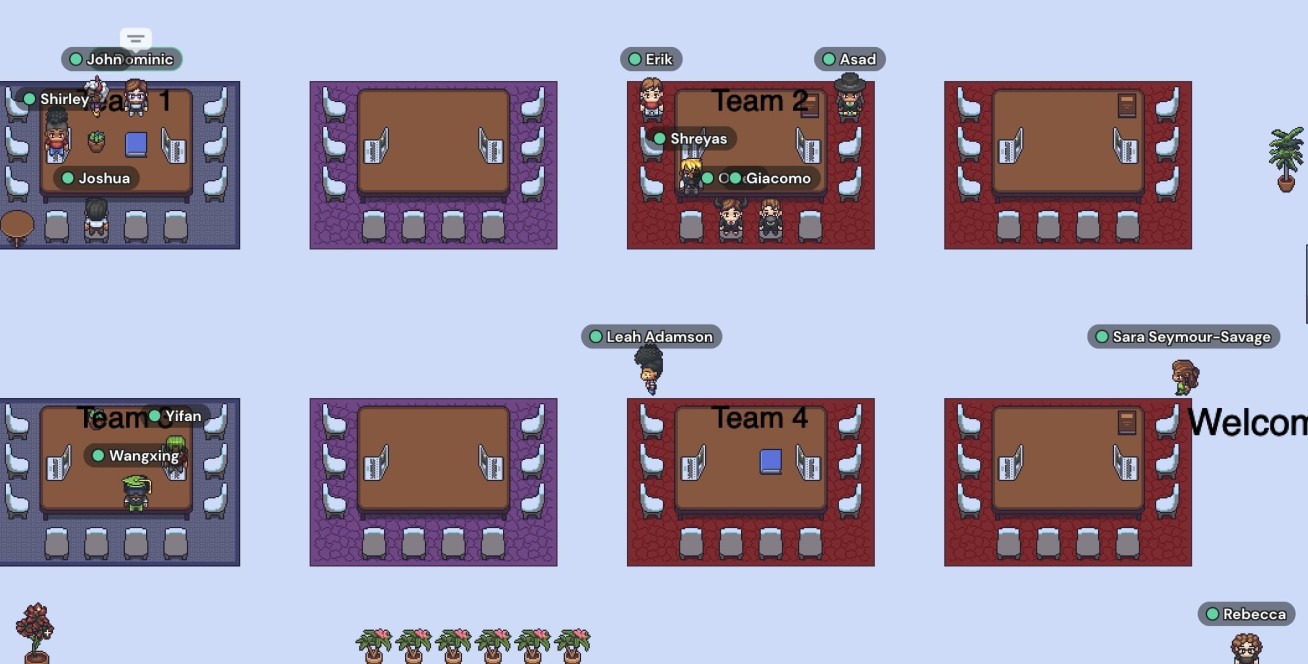
hard to put together the tasks and challenges for the day with the help from Professor Nicholas Harrison’s Computational Material's Science PhD group (Paolo Restuccia, Fei Gao and Felix Bennemann) who provided the data set. After this it was time for the challenge to start!
Teams were given the option to work either online or to book a space in the computer room where they could work together in person. Most teams competing worked online using gather.town. Through the programme team
“I had so much fun completing the challenge and learnt a lot. I didn’t know anyone in my team but it was easy for use to work together.” Datathon Participant
members used little avatars to wonder through the virtual classroom to speak with their team members and any helpers that were there on the day. Participants commented on how easy the programme was to pick up and how it really enhanced the feeling of “togetherness” on the day. One participant commented that “I had so much fun completing the challenge and learnt a lot. I didn’t know anyone in my team but it was easy for use to work together.”
Participants commented that because their teams were multidisciplinary it helped them find new ways and methods to approach the challenge. They commented that they “found a new appreciation and recognition of the importance of big data and data science techniques”.
The event was split over two days and so on the second day the winners were announced.
The Winners
The teams’ predictions were evaluated using quantitative assessment. The assessment was carefully designed by the Faculty of Natural Sciences Data Science Champions and the other helpers on the day.
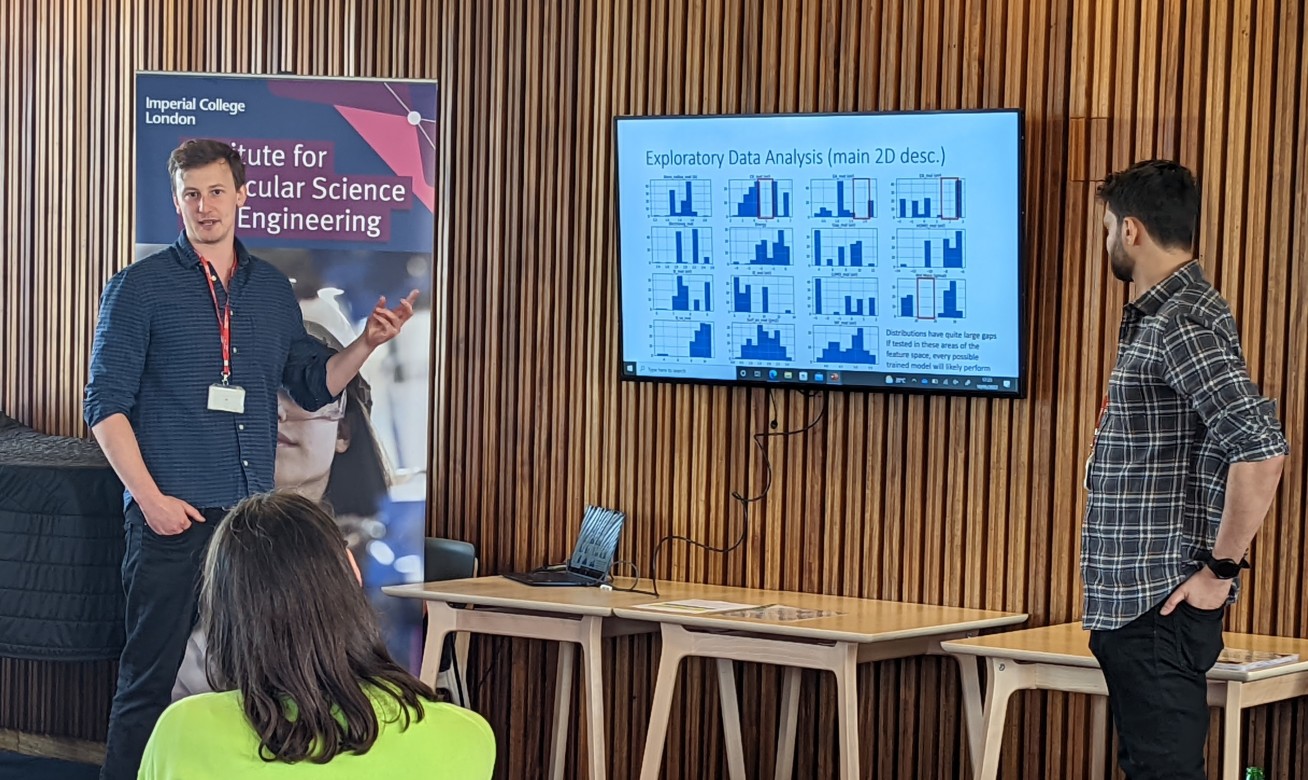
In second place came Team 1 Joshua Cheema , Tom Ribaroff, John Sexton and Shirely Ng from the Department of Mathematics and Dominic Wales from the Department of Chemistry. They were awarded £100 each.
In first place were Team 2 Asad Jamal and Erik Weiand from the Department of Mechanical Engineering and Shreyas Bhatt, Owen Griffiths, and Giacomo Fabrini from the Department of Chemistry. They were awarded £200 each.
All prizes were sponsored by the Faculty of Natural Sciences.
It was wonderful to see that multidisciplinary teams work together to produce amazing results.
The After Party
“I found a new appreciation and recognition of the importance of big data and data science techniques” Datathon Participant
On 10 May the Faculty of Natural Sciences Data Science Champions (Professor Sophia Yaliraki and Professor Guy Nason) and also the Data Science Ambassadors (Steven Bennett and Elizaveta Semenova) welcomed all participants and helpers to a wonderful event in the Physics Common Room. This event gave those who joined virtually the chance to meet in person and discuss how they approached the challenge. A few short presentations from the winning teams were made and they each asked questions on their methods and results.
The event continued with the winning teams and helpers from the datathon
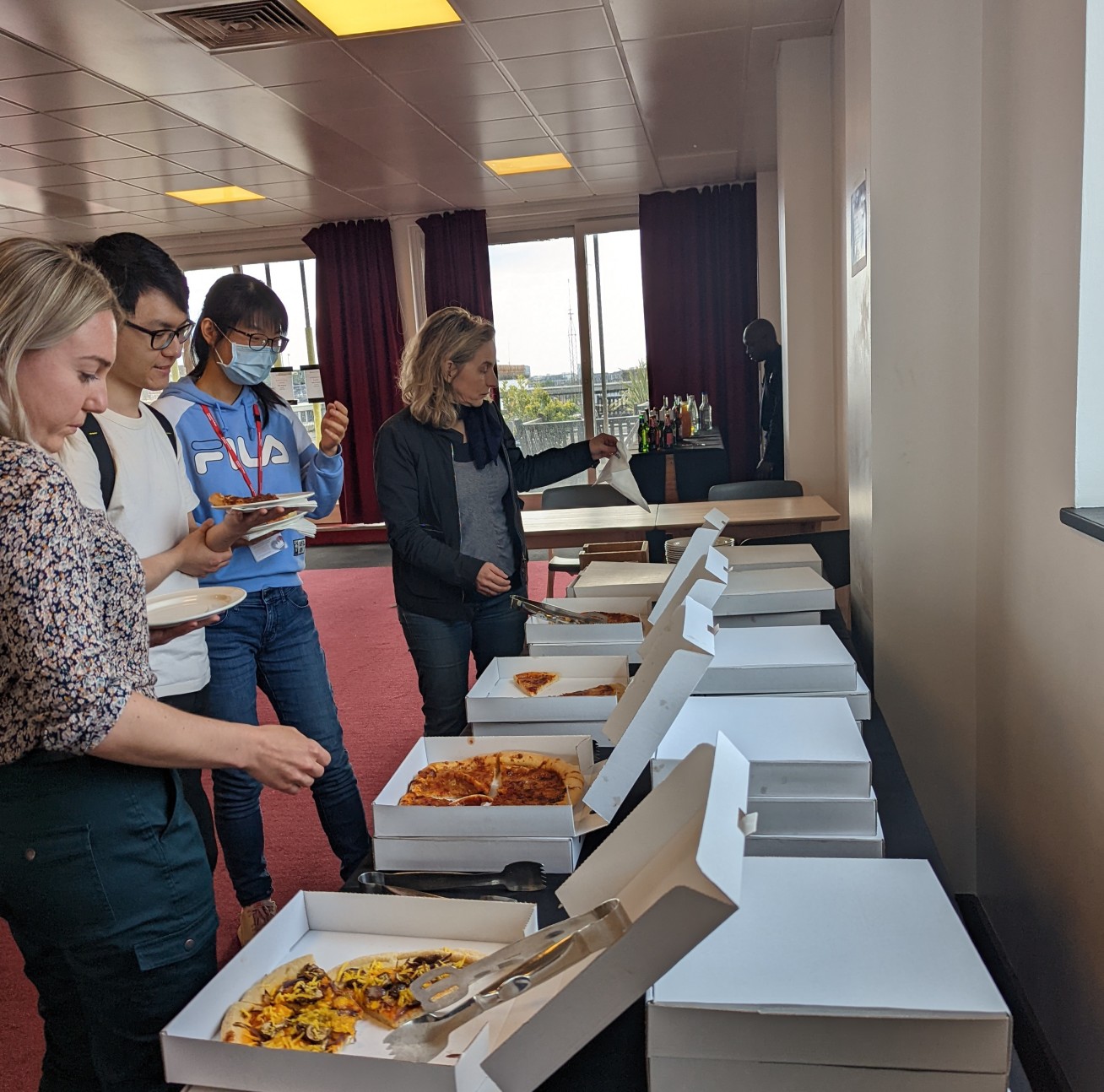
receiving certificates for their participation in the event. Pizzas and drinks were then served as everyone chatted and networked about the day and the future events that the data science champions are organising.
In Conclusion
The Institute for Molecular Science and Engineering and the Institute for Digital Molecular Design and Fabrication are grateful for everyone who helped make this event such a success especially the Faculty of Natural Science’s Data Science Champions, Professor Nicholas Harrison’s PhD group and all the helpers for the day. The Institutes staff are extremely pleased to hear all the positive feedback from the participants from the day. It has been wonderful to hear how interdisciplinary groups have benefited from working together to solve a challenge and come out with such positive results.
Article text (excluding photos or graphics) © Imperial College London.
Photos and graphics subject to third party copyright used with permission or © Imperial College London.
Reporter
Leah Adamson
Faculty of Engineering